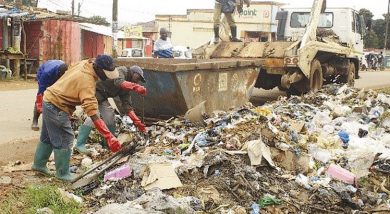Why is Malawi failing in irrigation farming?

Malawi Government, through its ambitious Malawi Growth and Development Strategy (MGDS), projected that between 1990 and 2015, the number of people suffering from hunger would be halved.
The projection was based on the premise of two indicators for monitoring hunger as adopted by the United Nations in its Millennium Development Goals (MDGs).
They include the prevalence of underweight children under five years of age and the proportion of population below the minimum level of dietary energy consumption.
It is common knowledge that malnutrition remains a serious challenge in the country. It is also said that malnutrition is the single biggest contributor to child mortality, not only in Malawi, but the world over.
Health and nutrition experts have often alluded to the fact that children’s nutritional status is a reflection of their overall health and development.
The nutritional well-being of young children is, therefore, a sign of the household, community and national investment in family health.
On the other hand, prevalence of underweight children is taken as a substitute indicator of the proportion of population that is undernourished.
The United Nations says all persons below the minimum level of nutritional or dietary energy requirement are deemed as ‘ultra-poor’.
Although government recognises irrigation and water development as key to the country due to its direct linkages with the production of food and cash crops, the industry has not been fully exploited.
Malawi, being one of the countries blessed with vast irrigable land with rivers and lakes overflowing with water all year long should have been the least affected with this problem.
It should have been one of the largest exporters of food and other non-food related materials to desert-stricken countries such as Israel.
However, this is not the case.
This begs a question: Why are Malawians hungry amidst vast water resources? Why is Malawi failing to utilise her water bodies to develop and expand irrigation from where she can grow enough for food and export?
Or indeed, why should Malawian farmers stay mostly unproductive every dry season, yet the basic resource for their industry, water, goes to waste?
Former UN Food and Agricultural Organisation (FAO) officer in Malawi, Des Fortes, once expressed shock that Malawians are failing to use water resources available to them like the wetlands otherwise called dambos for irrigation purposes.
“One of the potential areas for irrigation is a tributary of lake Malawi, the Shire River which flows south and joins the Zambezi. This river is totally unexploited during winter. This could easily be the breadbasket of Malawi. There’s a very big potential in the Shire River Valley for using water during winter to grow food crops— maize, vegetables like beans and other legume crops,” said Fortes.
African Water Facility (AWF) is one of the organisations that support the development of irrigated agriculture to increase food security and economic growth in Malawi.
Speaking in January this year, AWF coordinator, Akissa Bahri, said Malawi has long wanted to develop irrigated agriculture in the Lower Shire Valley and other potential areas, but a number of challenges have stood in the way of project implementation.
Bahri, however, indicated that in coordination with the World Bank, AWF would provide support any efforts aimed at addressing these issues, including the assessment of outstanding technical issues and the mobilisation of finances for the project.
“These studies will also help defining win-win ventures between smallholders and the private sector so that this project can be economically sustainable and provide more benefits and jobs to local populations,” said the AWF coordinator.
The Lilongwe-based Foundation for Irrigation and Sustainable Development (FISD) suggests that Malawi’s food security crisis, which threatens a large population every year, may well be a case of famine in a land of potential plenty.
Fisd executive director Kondwani Namchukwa said while it could be true that government is failing to provide the necessary support—in terms of extension services, improved seeds and implements—farmers, too, must share the blame.
Namchukwa noted that farmers have not fully owned irrigation projects mainly because either government or sponsoring non-governmental organisations (NGOs) do not or stopped paying them ‘allowances’.
“There is a high dependency syndrome among farmers in irrigation schemes in spite of training. This is what is killing irrigation farming in the country. Farmers need to own the concept for the industry to thrive,” he said.
Namchukwa also emphasised that the country’s agricultural economy, perennially weighed down by serious food shortages, deepening malnutrition, abject poverty, and unreliable weather, also needs to stop looking to the sky for rain in order to plant crops, saying recent studies suggest that dry spells are set to continue.
“Therefore, government must set its eyes on irrigated agriculture to grow its economy. If fully utilised, the irrigation sector can create employment opportunities for many people across the country through the establishment of smallholder farming ventures and professionally operated irrigation services,” he explained.





